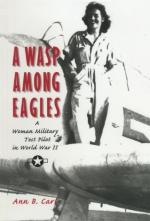|
This section contains 3,205 words (approx. 11 pages at 300 words per page) |

|
Michael Rustad
About the Author: Michael Rustad is a sociologist and former research assistant for the Wellesley College Center for Research on Women in Wellesley, Massachusetts. The following viewpoint is excerpted from his study of American servicewomen living in what Rustad calls “Khaki Town,” a military community in Germany.
From the end of World War II to the early 1970s, women constituted less than 1 percent of the total strength of the U.S. enlisted forces. Beginning in 1973, each service opened noncombat jobs to women. The total number of women in the Army grew from 37,994 in 1974 to 98,459 in 1979, with much of the expansion occurring in traditionally male areas such as the military police and telecommunications. . . .
When women hold males’ jobs, they find themselves subject to role strain. Paul Secord and Carl Backman defined role strain...
|
This section contains 3,205 words (approx. 11 pages at 300 words per page) |

|




